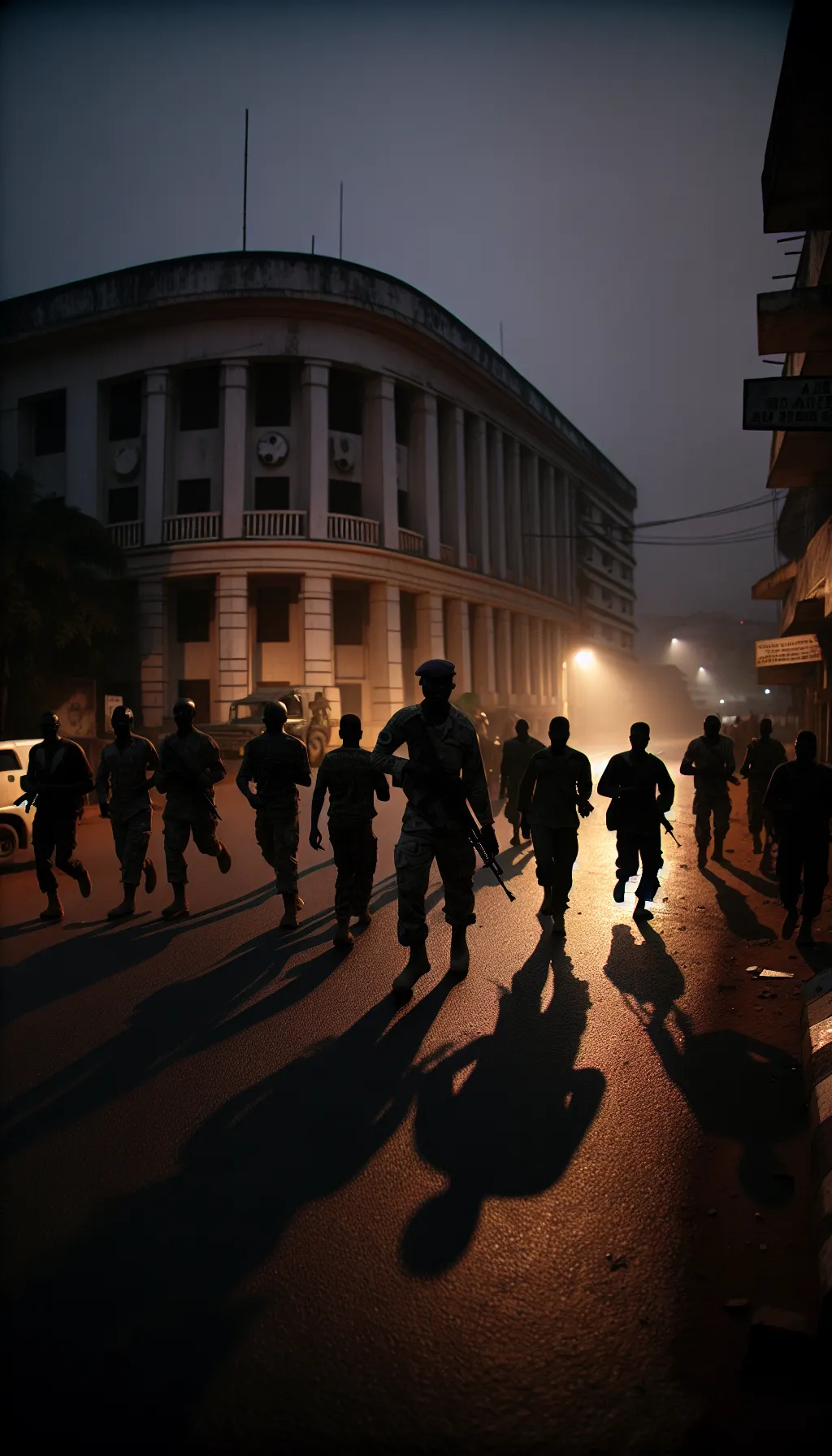Liberia – The Dawn of Change: Samuel Doe's Coup – April 11, 1980
TLDR;
- Event: On April 11, 1980, Samuel Doe, a 28-year-old Master Sergeant, led a coup in Liberia, overthrowing President William R. Tolbert Jr. and ending over a century of Americo-Liberian rule.
- Significance: The coup marked a seismic shift in Liberia’s socio-political landscape, ending the dominance of the Americo-Liberian elite and beginning a new era under Doe’s military junta.
- Aftermath: Despite initial hopes for change, Doe’s regime became authoritarian, marked by ethnic favoritism and instability, leading to prolonged violence and challenges.
- Legacy: The 1980 coup’s effects are still felt in Liberia today, symbolizing both the desire for change and the complexities of achieving stable governance.
–
Story
In the pre-dawn darkness of April 11, 1980, the air in Monrovia was thick with tension. The city, usually quiet at this hour, was alive with the sound of boots on pavement and the low rumble of military vehicles. Samuel Doe, a 28-year-old Master Sergeant, was leading a group of 16 non-commissioned officers in a daring coup that would forever alter the course of Liberian history.

For over a century, Liberia had been under the political control of the Americo-Liberians, descendants of freed American slaves. This elite minority had maintained a firm grip on power, often at the expense of the indigenous population. President William R. Tolbert Jr., the latest in a long line of Americo-Liberian leaders, was seen as a symbol of this entrenched dominance.
Doe and his men stormed the Executive Mansion, catching the President and his guards off guard. By the time the sun rose, Tolbert was captured and later executed, and Doe positioned himself as the head of the ruling military junta, the People’s Redemption Council. The coup was swift and brutal, but for many, it was a long-awaited change.
This turning point marked the end of Americo-Liberian rule and the beginning of a new era. However, the promise of change soon gave way to a period of instability and violence, as Doe’s regime, which became increasingly authoritarian and marked by ethnic favoritism toward his Krahn group, struggled to maintain control and faced numerous challenges both internally and externally.
The coup d’état of April 11, 1980, was not just a change in leadership; it was a seismic shift in the socio-political landscape of Liberia, the effects of which are still felt today.
–
| Would a different approach to governance have changed Liberia’s future after the coup? |